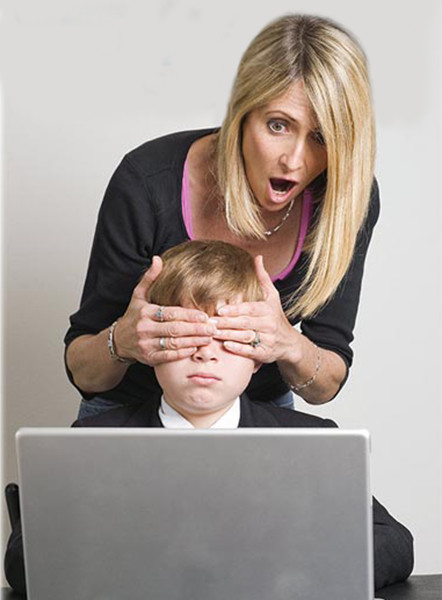 A photo: АНО «РРЦППН» How correctly to react to offers or insults of strangers? What information does not need to share with virtual friends? How to keep the security while sitting at the computer? In contrast to the rules of behavior on the street, the answers to these questions for the virtual world are not available to all adults. "Our children are at great risk every day," says Elena Zolotilova, president of the Regional Resource Center for the Prevention of Violence and an expert trainer for the Safe Environment program. - On the Internet, a child can easily find texts, pictures, video files that promote violence and aggression. In addition, he may be harassed and persecuted: so-called recruiters can involve a child in an environment of violence, including sexual abuse. It's not a secret that pornography, drug trafficking and other criminally-punishable things are widespread on the Internet. Therefore, parents should try to ensure the information security of their children. There are special rules for finding children on the Internet, which in an accessible form need to be conveyed to the child. "Below we suggest that you familiarize yourself with the basic rules of a secure Internet:
A photo: АНО «РРЦППН» How correctly to react to offers or insults of strangers? What information does not need to share with virtual friends? How to keep the security while sitting at the computer? In contrast to the rules of behavior on the street, the answers to these questions for the virtual world are not available to all adults. "Our children are at great risk every day," says Elena Zolotilova, president of the Regional Resource Center for the Prevention of Violence and an expert trainer for the Safe Environment program. - On the Internet, a child can easily find texts, pictures, video files that promote violence and aggression. In addition, he may be harassed and persecuted: so-called recruiters can involve a child in an environment of violence, including sexual abuse. It's not a secret that pornography, drug trafficking and other criminally-punishable things are widespread on the Internet. Therefore, parents should try to ensure the information security of their children. There are special rules for finding children on the Internet, which in an accessible form need to be conveyed to the child. "Below we suggest that you familiarize yourself with the basic rules of a secure Internet:
"Do not post personal information and photos on the Internet"
More and more often, cybercriminals are using the Internet as achannel to get children to give up personal information. Tell your child that photos or information about him or her or family members that he or she posts online can be used and distributed by malicious people for their own gain.
"Do not download or install anything from the Internet without the permission of your parents"
Tell your child that under the guise of a gameor a movie may hide a malicious file that can harm your home computer. Check the page from which your child is going to download something for viruses. Make sure that these materials do not contain information about violence and are not of an overtly sexual nature. In addition, tell your children that any material posted on the Internet has an author. There will be liability for its illegal use.
"Do not talk and do not meet with those who have never seen"
The attackers establish contacts insocial networks, forums, chats or email, and this is a direct threat to the safety of children. Criminals often pretend to be a peer of the victim, which makes it easy for them to meet in person. It is very important to explain to children that they should not communicate with strangers on the Internet, and that they should never meet with them.
"Do not open letters that came from an unfamiliar address"
Try to control your child's accessto all means of communication that work in real time, such as chat rooms, instant messages or email. Explain to your child that not everything that is seen on the Internet is true. Letters from unknown addresses may at best contain advertising. And at worst - a message from an Internet criminal posing as a well-wisher.








